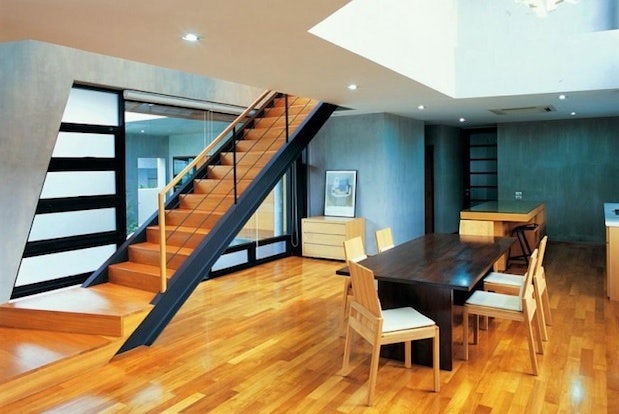
A luxury property in Bangkok, Thailand, one location seeing a heavy influx of Chinese buyers.
Chinese are now the world’s most influential buyers of new-build luxury property, spending an average of more than $2.8 million per purchase in competitive markets including Hong Kong, New York, and London, according to a new report.
Growing wealth creation around the world has helped expand demand for luxury residential property in key locations, with rich Chinese leading the way, according the Global Development Insight, a survey published by Knight Frank, a global real estate consultancy. The quarterly report, which includes data for the year up to the end of July, found that Chinese are the top purchasers of new-build residential property in cities including Sydney and Hong Kong, and are active buyers in Kuala Lumpur and Bangkok. They are also showing growing interest in top Western markets.
“It is not surprising that Chinese are now world leaders. They increasingly have the wealth to invest, and they are increasingly looking to diversify their investments outside of China, especially as the economic growth rate slows in the mainland,” says Liam Bailey, Knight Frank’s Global Head of Residential Research.
The number of high-net worth Chinese—those with a minimum of $1.6 million in investible assets—has more than doubled in the last four years to 700,000, and Bain & Company, a consultancy, expects the number of super-rich to grow another 20 percent by the end of the year. Knight Frank’s Wealth Report, meanwhile, forecasts the number of high-net worth individuals in China to grow 137 percent in the next decade.
Chinese buyers’ growing interest in foreign luxury property is fueled partly by a strong yuan and a slowing domestic economy. Many wealthy Chinese nationals are also buying homes abroad because of domestic limits on home purchases and migration. This year, outbound property investment by wealthy individuals is expected to grow by 30 percent, according to estimates by real-estate consultancy Jones Lang LaSalle. The most popular destinations, according to the firm, are the United States, Canada, Australia, and the UK Outbound property investment deals in 2013 reached $2.7 billion as of September, compared with $1.6 billion during the same period last year, according to Dealogic, a data tracker.
China’s wealthiest are also emigrating overseas in growing numbers. One third of Chinese with a net worth of more than $16 million have already emigrated overseas, according the first annual Report of International Chinese Migration. Another third have investments abroad, nearly double the number that reported making similar investments in 2011, according to a study this year by China Merchants Bank and Bain & Company. Of those who have invested abroad, about sixty percent plan to increase their foreign holdings. They come not just from China’s major cities, such as Beijing and Shanghai, but also some second-tier cities, including Chongqing and Dalian.
Still, Bailey says safe and diverse investment opportunities are the main drivers for luxury property buyers. “Emigration of Chinese is a factor, but most purchases are driven by an investment motive or a defensive play,” Bailey says. “They are looking to invest some part of their wealth in a safe haven.”
In the United States, wealthy Chinese have been buying up luxury property in places like New York and California for years. But their appetite for property investments is so great that they are also now purchasing distressed commercial properties in American cities such as Detroit, where office buildings, hotels, and other properties are being sold at steep discounts, according to a recent story published in the Wall Street Journal.
Chinese aren’t alone in Asia among the top buyers of luxury new-build property. Singaporeans and Russians were next on the list, beating out buyers from the United Kingdom and United States. Knight Frank expects Chinese, Russian, and U.S.-based investors to retain and grow their market share, while Latin American buyers, particularly from Brazil and Mexico, are predicted to feature more prominently in the global new-build market.
The rise of Asian luxury property buyers is set against to a backdrop of limited growth in overall investment activity. Half of the study’s respondents said that they expect the market share of non-local buyers of new-build residential property to remain unchanged over the next 12 moths. However, “given the popularity of prime real estate as an investment in the years following the financial crisis, we expect a portion of this growing wealth will continue to be assigned to new-build property in key locations around the world,” the report said.